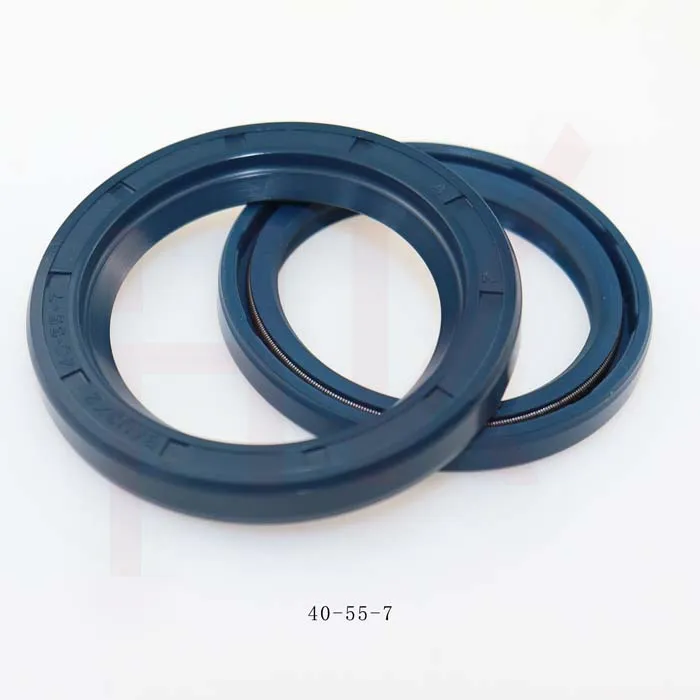Aug . 11, 2024 13:44 Back to list
Exploring the Benefits and Applications of Rubber Hub Seals in Various Industries
The Importance of Rubber Hub Seals in Various Applications
Rubber hub seals play a critical role in various industries, serving as essential components for sealing mechanisms in machinery and vehicles. These seals are designed to prevent the ingress of contaminants and the egress of lubricants, thus ensuring the longevity and efficiency of components such as bearings, wheel hubs, and transmissions. Their design and material properties significantly affect the performance and reliability of machinery, making them vital for maintaining operational standards in both industrial and automotive applications.
Understanding Rubber Hub Seals
Rubber hub seals are typically made from high-quality elastomeric compounds that provide excellent flexibility, resistance to wear, and durability. The primary function of these seals is to create a barrier against dirt, water, and other foreign particles that could compromise the integrity of the hub assembly or other mechanical systems. By keeping lubricants contained, rubber hub seals minimize friction and wear within the mechanisms, which is crucial for the smooth operation of gears and bearings.
Applications in the Automotive Industry
In the automotive sector, rubber hub seals are predominantly used in wheel hub assemblies. They are crucial for ensuring that lubricant remains within the wheel bearings, thereby preventing premature wear and failure. Without effective seals, contaminants like dirt and moisture can enter the bearing assembly, leading to rust, corrosion, and ultimately, mechanical failure. This can result in costly repairs and dangerous driving situations. Rubber hub seals are also employed in the axle areas of vehicles, providing similar protective functions.
Moreover, these seals are essential in maintaining the performance of braking systems, transfer cases, and differentials. In high-performance vehicles, where the demand for reliability and efficiency is greater, the quality of rubber hub seals becomes even more critical. Manufacturers often invest in advanced materials and designs to enhance the performance characteristics of these seals, such as temperature resistance, compression set resistance, and longevity.
rubber hub seal

Industrial Applications
Beyond the automotive domain, rubber hub seals are widely used in various industrial applications. For instance, they are integral to manufacturing equipment, conveyors, and pumps. In these settings, the seals help protect mechanical components from dust and debris, which can lead to breakdowns and increased maintenance costs. In industries like food and beverage, pharmaceuticals, and chemicals, the design and material of rubber seals must meet stringent hygiene and safety regulations, making their selection and application vital.
Choosing the Right Rubber Hub Seal
When selecting rubber hub seals, several factors should be considered. These include the operating temperature range, the type of lubricant used, and the specific environmental conditions the seals will face. Different formulations of rubber, such as nitrile, fluorocarbon, or silicone, offer various benefits in terms of temperature resistance and chemical compatibility. Manufacturers must carefully analyze these requirements to select the most appropriate seal for their applications.
Additionally, proper installation and maintenance practices are crucial for maximizing the lifespan of rubber hub seals. Incorrect installation can lead to improper sealing and early degradation, while regular inspections can help identify wear and tear before it becomes a significant issue.
Conclusion
In summary, rubber hub seals are indispensable components across multiple industries, playing a vital role in ensuring the efficiency and longevity of mechanical systems. Whether in vehicles or industrial machinery, the effectiveness of these seals can determine the overall reliability and performance. Investing in high-quality rubber hub seals and ensuring proper installation and maintenance can significantly reduce downtime and maintenance costs, ultimately leading to more efficient operations and safer products.
-
TCN Oil Seal Metal Ring Reinforcement for Heavy Machinery
NewsJul.25,2025
-
Rotary Lip Seal Spring-Loaded Design for High-Speed Applications
NewsJul.25,2025
-
Hydraulic Cylinder Seals Polyurethane Material for High-Impact Jobs
NewsJul.25,2025
-
High Pressure Oil Seal Polyurethane Coating Wear Resistance
NewsJul.25,2025
-
Dust Proof Seal Double Lip Design for Construction Equipment
NewsJul.25,2025
-
Hub Seal Polyurethane Wear Resistance in Agricultural Vehicles
NewsJul.25,2025
-
The Trans-formative Journey of Wheel Hub Oil Seals
NewsJun.06,2025
Products categories
















